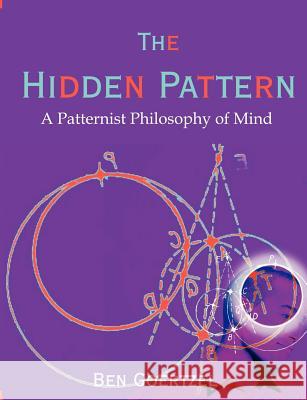The Hidden Pattern: A Patternist Philosophy of Mind » książka
The Hidden Pattern: A Patternist Philosophy of Mind
ISBN-13: 9781581129892 / Angielski / Miękka / 2006 / 424 str.
The Hidden Pattern presents a novel philosophy of mind, intended to form a coherent conceptual framework within which it is possible to understand the diverse aspects of mind and intelligence in a unified way. The central concept of the philosophy presented is the concept of "pattern": minds and the world they live in and co-create are viewed as patterned systems of patterns, evolving over time, and various aspects of subjective experience and individual and social intelligence are analyzed in detail in this light. Many of the ideas presented are motivated by recent research in artificial intelligence and cognitive science, and the author's own AI research is discussed in moderate detail in one chapter. However, the scope of the book is broader than this, incorporating insights from sources as diverse as Vedantic philosophy, psychedelic psychotherapy, Nietzschean and Peircean metaphysics and quantum theory. One of the unique aspects of the patternist approach is the way it seamlessly fuses the mechanistic, engineering-oriented approach to intelligence and the introspective, experiential approach to intelligence.
The Hidden Pattern presents a novel philosophy of mind, intended to form a coherent conceptual framework within which it is possible to understand the diverse aspects of mind and intelligence in a unified way. The central concept of the philosophy presented is the concept of "pattern": minds and the world they live in and co-create are viewed as patterned systems of patterns, evolving over time, and various aspects of subjective experience and individual and social intelligence are analyzed in detail in this light. Many of the ideas presented are motivated by recent research in artificial intelligence and cognitive science, and the authors own AI research is discussed in moderate detail in one chapter. However, the scope of the book is broader than this, incorporating insights from sources as diverse as Vedantic philosophy, psychedelic psychotherapy, Nietzschean and Peircean metaphysics and quantum theory. One of the unique aspects of the patternist approach is the way it seamlessly fuses the mechanistic, engineering-oriented approach to intelligence and the introspective, experiential approach to intelligence.











